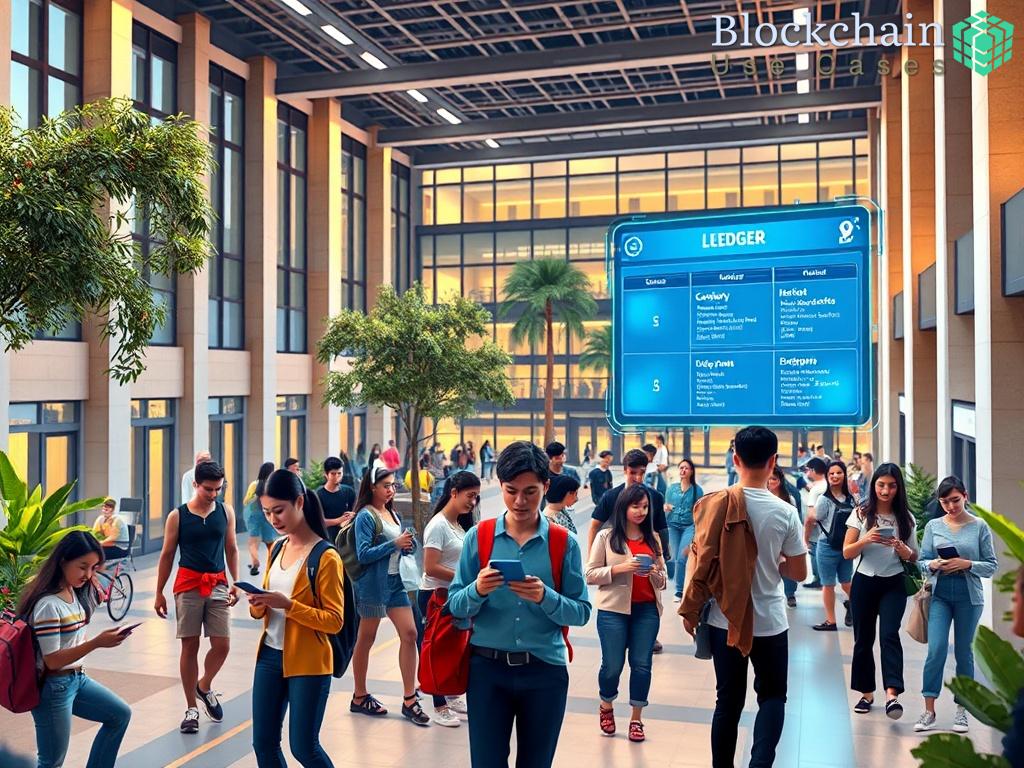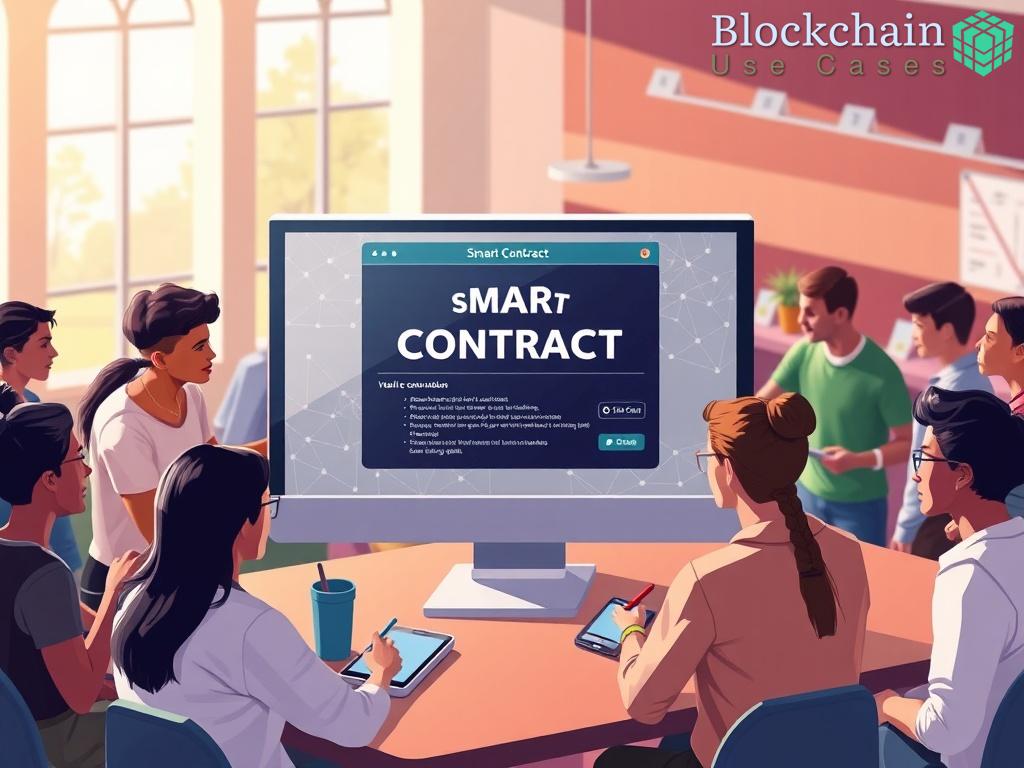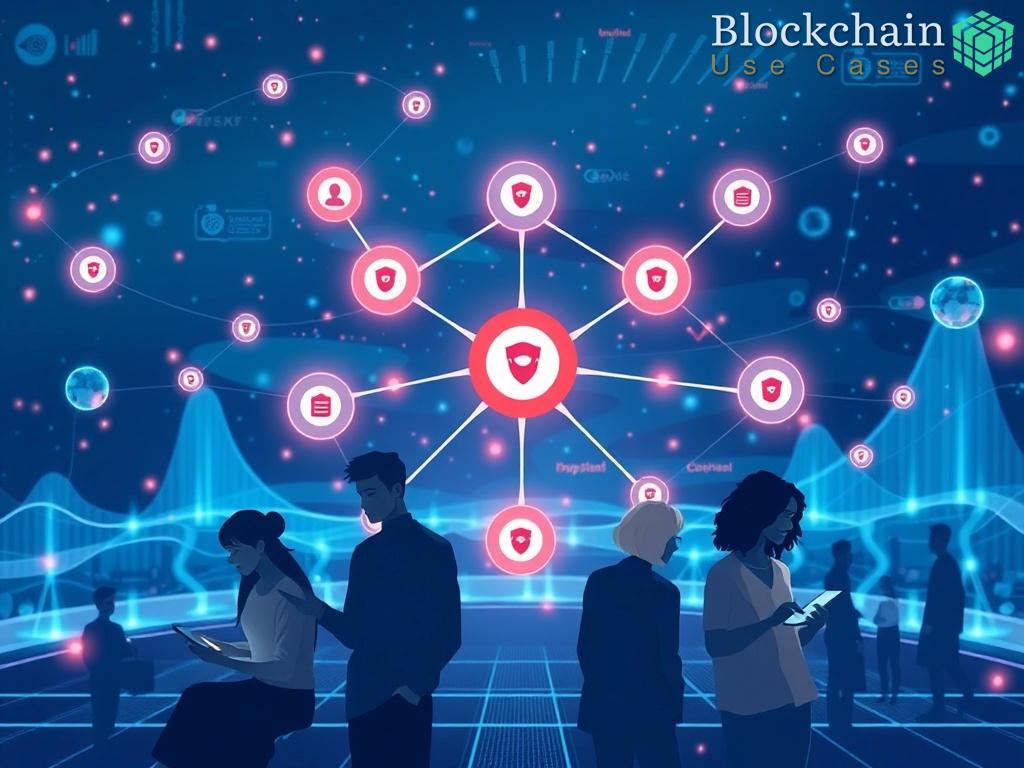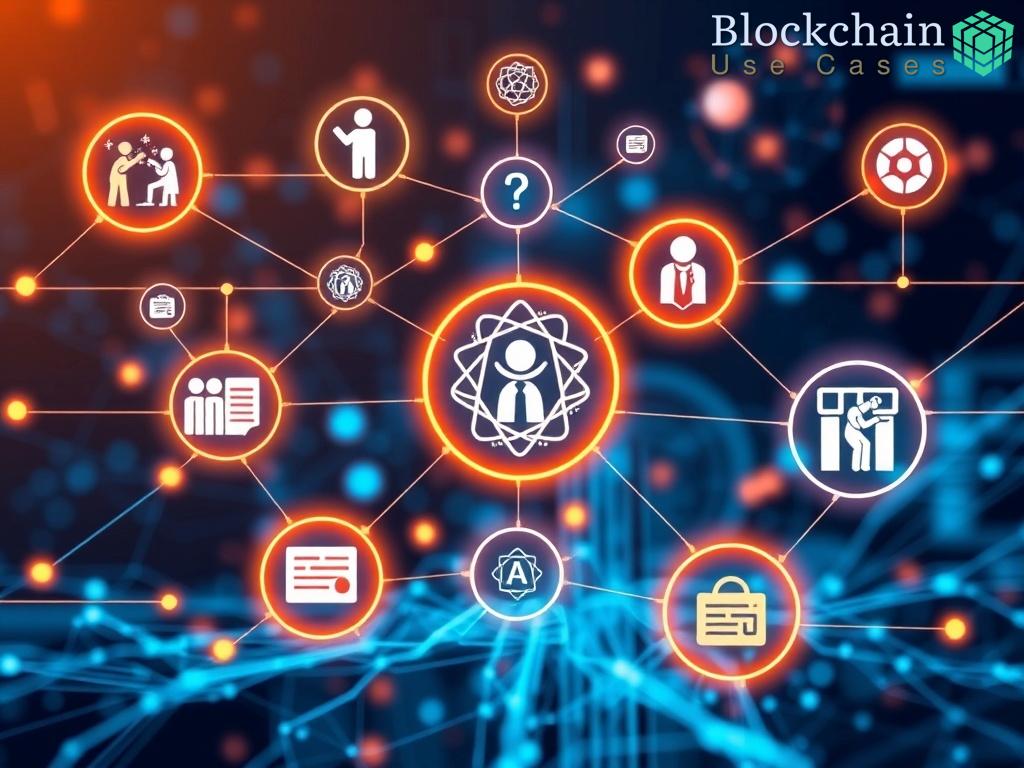Blockchain Technology and Academic Credentials
The Paradigm Shift: Blockchain in Education
As the world continues to embrace technological advancements, education is no exception. Blockchain technology is emerging as a revolutionary force capable of transforming how academic credentials are verified and maintained. This decentralized ledger system offers unprecedented security, transparency, and efficiency, making it an ideal solution for addressing long-standing issues related to academic credit for prior learning assessment (PLA). By leveraging blockchain, educational institutions can enhance the integrity of academic records and streamline the credit transfer process, making it more accessible for learners.
Unlocking the Potential of Blockchain for Academic Credentials
Blockchain technology provides a robust framework for securely storing and sharing academic credentials. Traditional methods of credential verification often involve lengthy processes, prone to errors and fraud. Blockchain’s immutable nature ensures that once a record is created, it cannot be altered or deleted, providing a reliable source of truth for students and institutions alike.
- Transparency: All stakeholders can access verified records, reducing the risk of misinformation.
- Security: Advanced cryptographic techniques protect sensitive information from unauthorized access.
- Efficiency: Automated processes reduce administrative burdens and expedite verification.
Bridging the Gap: Enhancing Prior Learning Assessment
Prior learning assessment (PLA) acknowledges the knowledge and skills individuals acquire outside traditional academic environments. However, validating such learning can be challenging. With blockchain, institutions can create a comprehensive and verifiable record of a learner’s achievements, including work experience, certifications, and informal learning.
Implementing a blockchain-based system for PLA enables:
- Streamlined documentation of learning experiences.
- Real-time updates to academic records as new competencies are validated.
- Easier transfer of credits between institutions.
This not only empowers learners by recognizing their diverse experiences but also fosters an inclusive educational environment that values all forms of learning.
Streamlining Prior Learning Assessments with Blockchain
The landscape of education is rapidly evolving, and the need for a more efficient and reliable method of assessing prior learning is paramount. As traditional educational frameworks struggle to keep pace with the diverse and dynamic nature of learning today, blockchain technology emerges as a beacon of innovation. By offering a tamper-proof, decentralized system for recording academic achievements, it promises to revolutionize how institutions recognize and validate prior learning experiences.
With blockchain, the complexities that have long plagued prior learning assessments (PLA) can be effectively addressed. The combination of transparency, security, and automation inherent in blockchain technology facilitates a seamless integration of learner achievements into academic records. Each learner’s journey can be accurately documented, ensuring that their unique experiences and skills gained outside conventional settings are acknowledged and valued.
Transforming Verification Processes
One of the most significant advantages of implementing blockchain for PLA is its capacity to transform the verification processes associated with academic credits. In traditional systems, verifying a learner’s background often involves cumbersome paperwork and lengthy waiting periods, creating barriers to educational advancement. In contrast, blockchain’s real-time capabilities allow for instantaneous updates to academic credentials as new learning milestones are met. This not only expedites the process but also enhances the trustworthiness of the information recorded.
In a blockchain-based PLA system, institutions can easily access a comprehensive view of a learner’s accomplishments through a secure digital ledger. This streamlined approach minimizes the risk of fraud and misinformation, providing all stakeholders with the confidence needed to make informed decisions regarding credit transfers and recognition of prior learning.
Cultivating an Inclusive Learning Environment
Another profound impact of blockchain on PLA is its role in fostering an inclusive educational ecosystem. By recognizing diverse learning pathways, institutions can cater to a wider range of learners, including those who have gained valuable skills through work experience, online courses, or other informal means. Blockchain technology empowers learners by allowing them to present a more holistic view of their competencies, which can lead to greater opportunities for credit recognition and academic progression.
This inclusivity not only benefits individual learners but also enriches the academic community as a whole. As educational institutions embrace this innovative approach, they contribute to a culture that values lifelong learning and diverse experiences. By bridging the gap between formal education and experiential learning, blockchain technology paves the way for a more equitable and accessible educational landscape.
Ensuring Data Integrity in Academic Records via Blockchain
In an era where the accuracy of academic records is paramount, ensuring data integrity has become a focal point for educational institutions. The advent of blockchain technology offers a transformative solution to longstanding concerns regarding the authenticity and reliability of academic credentials. By utilizing the inherent characteristics of blockchain, such as its decentralized and immutable nature, institutions can establish a robust framework that not only protects sensitive information but also fosters trust among stakeholders.
Immutable Records: A Game Changer for Verification
At the heart of blockchain technology lies its ability to create immutable records. Once data is entered into a blockchain, it becomes nearly impossible to alter or delete, thus serving as a reliable repository of academic records. This feature is particularly critical in the context of academic credit for prior learning assessments (PLA), where the verification of prior achievements is essential. Traditional methods often face challenges related to documentation errors and fraudulent claims. In contrast, a blockchain-based system ensures that each learner’s academic journey is accurately documented and permanently accessible, thereby minimizing the risk of discrepancies.
Decentralization: Enhancing Trust Across Stakeholders
The decentralized nature of blockchain technology further enhances the integrity of academic records. By removing the need for a central authority to manage and verify academic credentials, blockchain creates a transparent environment where all stakeholders—including students, educational institutions, and employers—can access verified information in real time. This transparency not only builds confidence in the accuracy of academic records but also streamlines the credit transfer processes, allowing for a more efficient recognition of prior learning. Institutions can quickly validate claims made by learners, ensuring that their credentials reflect an accurate picture of their capabilities.
Real-time Updates: Keeping Academic Records Current
Another significant advantage of utilizing blockchain for academic records is the ability to implement real-time updates. As learners acquire new skills or complete additional assessments, their academic profiles can be instantly updated on the blockchain. This capability ensures that academic records remain current and relevant, allowing educational institutions to respond swiftly to the evolving landscape of learning. Furthermore, this immediacy can lead to more informed decision-making regarding credit transfers and admissions, thereby enriching the overall educational experience.
In conclusion, the integration of blockchain technology into academic record-keeping offers an unprecedented opportunity to enhance the integrity of academic credentials. By ensuring the immutability of records, decentralizing verification processes, and enabling real-time updates, institutions can create a more trustworthy and efficient framework for recognizing prior learning achievements. The result is a more inclusive educational ecosystem that values diverse learning pathways, ultimately benefiting learners and institutions alike.
Enhancing Transparency in Credit Transfer Processes
The integration of blockchain technology into education is not merely a trend; it is a critical advancement that addresses the complexities surrounding the transfer of academic credits. As educational institutions strive to provide a more inclusive and reliable framework for recognizing prior learning, blockchain emerges as a pivotal solution that enhances transparency in credit transfer processes. By facilitating real-time access to verified credentials, this technology dismantles barriers that have historically hindered learners from maximizing their educational potential.
Blockchain’s decentralized nature serves as a cornerstone for improving transparency in credit transfers. In traditional systems, the process often entails navigating through bureaucratic hurdles, where documentation can easily be lost or misinterpreted. However, with blockchain, every achievement is recorded in a tamper-proof ledger that is accessible to all stakeholders involved—students, institutions, and employers alike. This open environment fosters trust and accountability, allowing for a seamless exchange of information regarding academic credentials.
Moreover, the capacity for real-time updates on the blockchain ensures that academic records are always accurate and reflective of a learner’s current status. When a student completes a course or gains new competencies, their academic profile is instantly updated, providing a dynamic snapshot of their achievements. This immediacy not only expedites the credit transfer process but also empowers students to take ownership of their learning journeys. Institutions can quickly verify claims, reducing the likelihood of disputes and enhancing the legitimacy of academic credits.
As educational institutions adopt blockchain solutions, they begin to witness a transformation in their credit transfer protocols. The traditional reliance on paper documents and manual verification methods is rapidly becoming obsolete. Institutions can now utilize a secure digital ledger that allows for the automatic recognition of credits. This shift not only saves time but also minimizes the risk of fraud, as each entry on the blockchain is immutable and verifiable.
To illustrate the impact of blockchain on transparency in credit transfers, consider a comparison between traditional methods and blockchain-based systems:
| Aspect | Traditional Method | Blockchain-Based System |
|---|---|---|
| Verification Time | Days to Weeks | Instantaneous |
| Risk of Fraud | High | Minimal |
| Accessibility | Limited to Institutional Access | Open to All Stakeholders |
In conclusion, the enhanced transparency brought about by blockchain technology fundamentally shifts the landscape of credit transfer processes. By fostering a culture of trust and accountability, educational institutions can better recognize and validate prior learning experiences. This not only benefits learners by providing them with a clear path to academic progression but also enriches the educational ecosystem as a whole. As we move forward, embracing blockchain technology will be crucial in creating a more equitable and transparent framework for credit transfers in the realm of education.
Future Trends: Blockchain in Lifelong Learning Credentials
The future of education is being reshaped by the integration of blockchain technology, particularly in the realm of lifelong learning credentials. As learners increasingly seek to enhance their skills and knowledge throughout their lives, educational institutions and employers are recognizing the need for a credible and efficient method of validating these experiences. Blockchain stands at the forefront of this evolution, providing a comprehensive solution that not only verifies achievements but also enriches the learning landscape.
Revolutionizing the Landscape of Lifelong Learning
As the job market continues to evolve rapidly, the demand for continuous education and skills development has never been higher. Blockchain technology offers a unique approach to lifelong learning by creating a secure and verifiable record of each learner’s accomplishments. This decentralized system ensures that every course completed, skill acquired, and certification earned is permanently documented, providing a transparent pathway for learners to showcase their competencies. In this context, blockchain not only validates prior learning but also encourages individuals to pursue diverse educational opportunities without the fear of future credential disputes.
Fostering a Culture of Continuous Validation
The implementation of blockchain for lifelong learning credentials is set to foster a culture of continuous validation. By allowing real-time updates to an individual’s academic profile, blockchain facilitates the immediate recognition of new skills and qualifications. This capability not only streamlines the hiring process for employers but also empowers learners to take charge of their educational journeys. Furthermore, as institutions adopt this technology, they will be equipped to provide personalized learning pathways that adapt to each individual’s unique experiences and aspirations. The result is a more dynamic education system that values ongoing skill development and recognizes the importance of diverse learning methods.
Bridging the Gap Between Education and Employment
The confluence of blockchain technology and lifelong learning credentials has the potential to bridge the gap between education and employment. Employers can access a verified digital ledger of a candidate’s qualifications, reducing the time spent on background checks and enhancing trust in the hiring process. This accessibility not only facilitates informed decision-making but also promotes a meritocratic environment where skills and competencies take precedence over traditional degrees. As organizations embrace this shift, the emphasis will increasingly be on individuals’ abilities to contribute effectively to the workplace, rather than solely on their formal educational backgrounds.
| Aspect | Traditional Credentialing | Blockchain Credentialing |
|---|---|---|
| Verification Time | Days to Weeks | Instantaneous |
| Risk of Fraud | High | Minimal |
| Accessibility | Limited to Institutional Access | Open to All Stakeholders |
| Record Immutability | Prone to Alteration | Immutable |
In conclusion, the adoption of blockchain technology in lifelong learning credentials is poised to transform educational paradigms, creating a more equitable and transparent framework that values diverse pathways of learning. As we move forward, it will be crucial for both educational institutions and employers to embrace this innovative approach, ensuring that the future of learning is accessible, trustworthy, and aligned with the evolving needs of the global workforce.


















